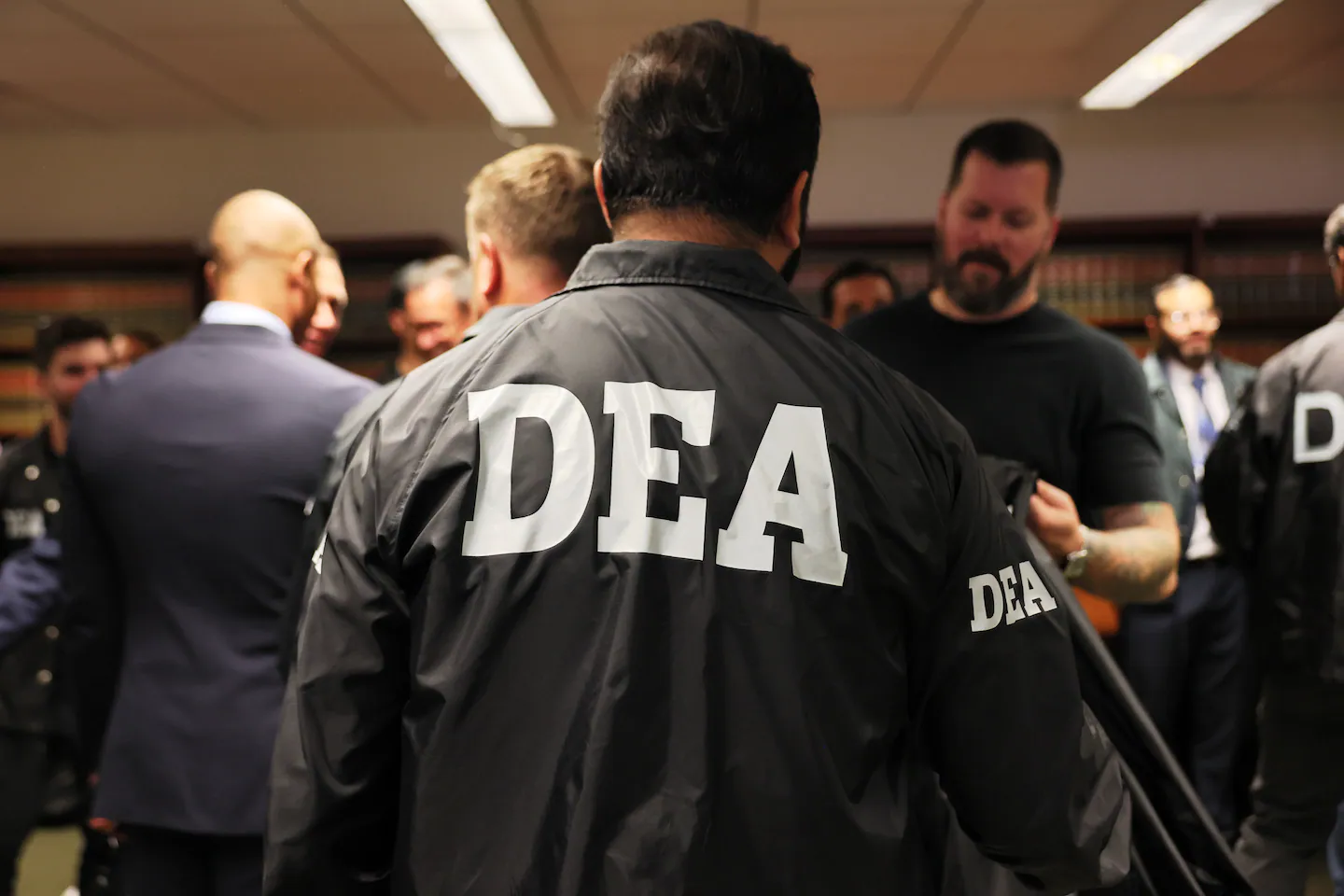Copyright The Boston Globe

So, in the film, when Everett claims the drug gang is about to land a load of drugs worth a half-billion dollars, he is challenged by the incomparable Brendan Gleeson, portraying cynical, world-weary Sgt. Gerry Boyle of the Garda Síochána, Ireland’s national police force, who offers a qualifier: “Street value.” Perplexed, Everett asks what he’s talking about. Boyle expresses deep skepticism about the value US authorities routinely assign to the drugs they seize, offering one of the shrewdest lines ever spoken in cinema: “Street value. I do always wonder what street it is you’re buying your cocaine on because it’s not the same street as I’m buying my cocaine on.” I got to thinking about that scene after reading the Globe Spotlight report about the DEA ginning up the numbers from a series of arrests last summer. The story shows how the DEA greatly exaggerated the significance of the arrests, suggesting those arrested were gangsters working for the notorious Sinaloa cartel in Mexico. Jarod Forget, special agent in charge of the DEA in New England, said the massive investigation “led to 171 cartel arrests.” But, as the Spotlight Team found, calling those suspects members of the Sinaloa cartel is like saying someone who buys weed from a sketchy dude on the corner is “linked to the Sinaloa cartel.” Most were not gangsters but low-hanging fruit, pathetic souls, some homeless, some addicted to the drugs they were selling to pay for their next fix. But the DEA, in search of public approval and congressional funding, made it seem like they took down Carlos Escobar and machine-gun toting narco-terrorists when in reality the people they lugged are the sort who nod off in convenience store parking lots and neglect their health or their kids. The Trump administration pitched this as a major strike against the narco-terrorists sworn to destroy all that is great and good about America. All for the purpose of justifying their practice of blowing up boats in foreign or international waters without providing proof they are actually narco-terrorists. Maybe they are, maybe they’re not. But even so, I’m guessing those boats are not piloted by the “high-value” targets the DEA claims it targeted. This is not to excuse the alleged criminality of those on those boats, only to question whether the unprecedented lethal attacks on boats suspected of running drugs are justified or effective. As for how the government decides which boats to blow up, I’m reminded of a gangster, a real one: Whitey Bulger. Whitey was able to get an FBI agent he knew from South Boston to enlist him as an FBI informant, to insulate himself from prosecution. Whitey played the FBI like a Stradivarius, telling them what they wanted to hear, especially about the Mafia, his competitors in the rackets. It was the perfect scam: Whitey used the FBI to eliminate his competition, leaving him to murder and make a fortune with impunity. It should be noted here that it was honest and industrious DEA agents and Massachusetts State Police detectives who targeted Whitey Bulger for prosecution, even as the FBI compromised their investigations to protect their asset. So this is not to suggest there aren’t good DEA agents out there, doing important work. It’s to question how much the DEA is being played by the Trump administration the same way Whitey Bulger used to play the FBI. I’d be shocked to learn that same informant-running-the-handler dynamic is not in play in some of those cases as the government targets boats it claims are bringing drugs here. Drug enforcement, historically, is overly-dependent on informants, almost all of whom are engaged in the very sordid trade law enforcement agents who use them are sworn to disrupt. Those agents are forced to rely on the honesty and integrity of individuals who rarely possess those qualities. It’s a recipe for deceit, and disaster. But, in fairness, it sometimes leads to good arrests of bad people. The Spotlight story exposed a propensity for the government to tell us what we want to hear, that the drug problem is imported by swarthy foreigners who hate us because they ain’t us. It’s disingenuous fear-mongering, meant to scare you and reassure you at the same time. Those drug-dealing criminals aren’t trying to destroy our way of life; they’re trying to capitalize on it, because taking drugs is a well-established, ingrained part of the American way of life. We have met the enemy. And the enemy is us. The only way to combat drugs is basic economics, supply and demand. We can never end supply. Despite all the money and risk to law enforcement spent on interdiction, law enforcement is able to stop only a fraction of the drugs smuggled into the United States. There’s too much money to be made in drugs, especially in the mostly poor countries that produce and export them. The only way to curtail the drug market is not at the supply end, but the demand end. That puts the onus on ordinary Americans, too many of whom enjoy a line of blow to take the edge off, can’t stop putting needles in their arms, or think risking their life with a hit of fentanyl is worth that next high. Until more Americans stop using drugs, the idea that our law enforcement can make a serious dent in the drug trade is nothing but a dream, a big pipe dream.



